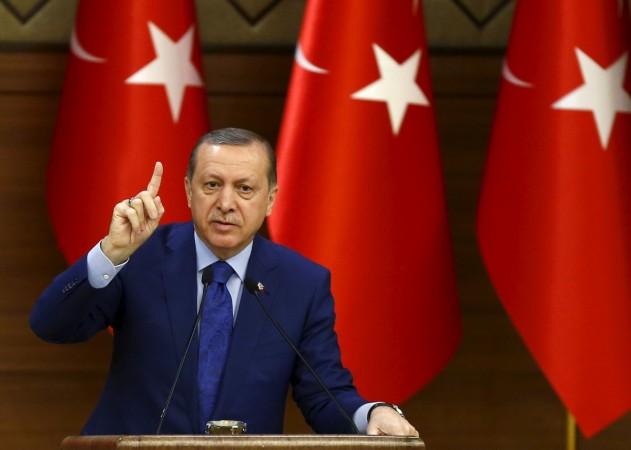
Turkey issued detention orders for around 3,224 people on Tuesday over their alleged links to a failed coup attempted in July last year. Reports state that more than a thousand people have already been detained by authorities for their suspected association with US-based cleric Fethullah Gulen, whom Turkey blames for the coup, NTV reported.
This operation is one of the largest in months against the suspected supporters of Gullen, who was a former ally of President Recep Tayyip Erdogan. The Erdogan government is now accusing the cleric of attempting to topple the Turkish president by force.
Interior Minister Suleyman Soylu said that the detention operation, which was conducted overnight, was aimed at cracking down on a Gulen network "that infiltrated our police force, called 'secret imams', the Independent, UK reported.
"One thousand and nine secret imams have been detained so far in 72 provinces, and the operation is ongoing," Soylu told reporters in Ankara.
The Turkish government has already removed or suspended more than 125,000 people, including police, teachers, soldiers and public servants, and formally arrested 40,000 people ever since the attempted coup to overthrow the Erdogan government. The failed attempt by a section of the soldiers resulted in killing of more than 240 people, mostly civilians.
The fresh round of detentions came 10 days after voters in Turkey backed Erdogan in a referendum to reform its constitution to give sweeping powers to the Turkish president. European election observers however said that the referendum voting had many irregularities, which left the country bitterly divided.
Turkey will now get an executive presidency, which means that the role of the Prime Minister in Turkey's constitution will be scrapped and the President will assume the position of head of the government.
Opponents of the changes say that introduction of a presidential system in the government will leader to a one-man regime headed by Erdogan. They worry that the new system will lead to authoritarianism as the president will have an extended power over both the judiciary and the legislature.
Erdogan, however, has argued that the reforms would make the Turkish government more strong and it would be able to take better decisions to defend the nation against terrorism and internal threats like the Kurdish insurgency and coup plots.


!['Kaise ho bhai..': PM Modi shook hands with Akshay Kumar at a media summit in Delhi [Watch] 'Kaise ho bhai..': PM Modi shook hands with Akshay Kumar at a media summit in Delhi [Watch]](https://data1.ibtimes.co.in/en/full/806317/kaise-ho-bhai-pm-modi-shook-hands-akshay-kumar-media-summit-delhi-watch.jpg?w=220&h=135&l=50&t=40)


!['Kaise ho bhai..': PM Modi shook hands with Akshay Kumar at a media summit in Delhi [Watch]](https://data1.ibtimes.co.in/en/full/806317/kaise-ho-bhai-pm-modi-shook-hands-akshay-kumar-media-summit-delhi-watch.jpg?w=220&h=135)


